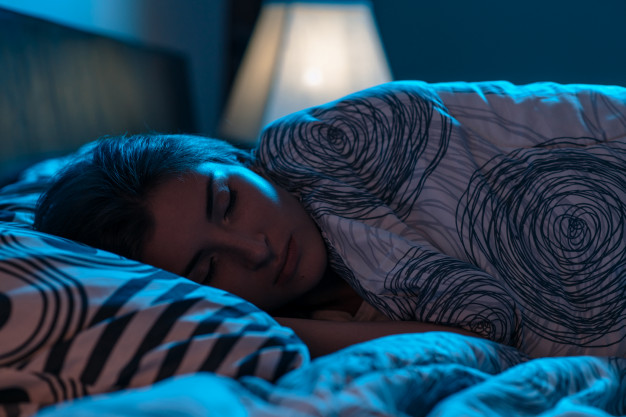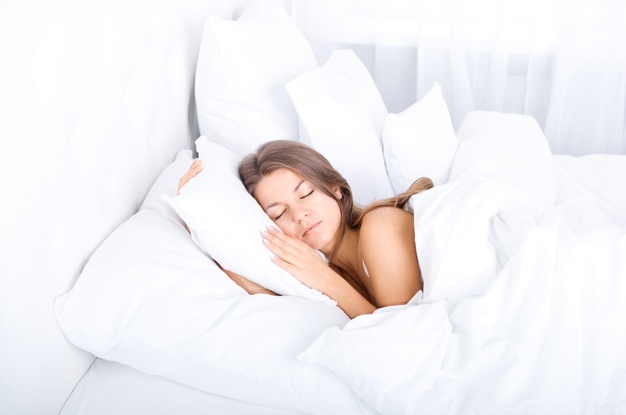A good lifestyle is a key to leading a healthy life. Lifestyle habits can directly impact your physical, mental, and emotional health. A healthy lifestyle increases your life expectancy by up to seven years.
There are various aspects of lifestyle that affect your health, like a nutritious diet, exercise, work-life balance, etc. Out of all the factors, one of the most important and the most neglected factors is sleep.
A proper sleep cycle is crucial for your health and a good lifestyle. Deprivation of sleep or even poor sleep quality can lead to several issues like obesity, cardiovascular problems, diabetes, etc. Sleep not only affects your physical health but also plays a vital role in maintaining your mental health.
There are several ways through which you can achieve a more fulfilling sleep, out of which maintaining the ideal sleep temperature is perhaps on top of the list. Let’s look at how temperature affects sleep and tips that can help you maintain the perfect temperature to get your well-deserved beauty sleep!
The Relationship Between Sleep and Temperature

The human body temperature, room temperature, and quality of sleep are all closely interlinked. The human body utilizes the circadian rhythm to tell our mind when to sleep and wake up. It does so by combining different factors, but mainly by keeping our biological clock in sync with the sun’s rising and setting. Due to this, the effect of temperature and light is integral to this mechanism. A temperature difference to the one which your body expects during the night will naturally lead to discomfort and poor sleep quality.
Let’s look at how temperature affects our sleep.
When we are about to sleep, our bodies lower their temperature until sunrise. If the ambient room temperature at that time is too hot, our bodies won’t lose the heat as quickly, resulting in sweating and discomfort.
It is thus beneficial to keep the room temperature as close to ideal as possible, but what is it? According to Cielo WiGle Inc, a smart home company focusing on automated temperature controls, the ideal temperature range for sleeping is 62o to 67o. The reason for it is that this temperature closely matches your body temperature during the different phases of sleep. Be wary, though, that the exact temperature can also vary depending on a host of factors, such as age, location, genetics, and medical condition. All these factors need to be kept in mind to achieve the perfect sleeping temperature.
6 Tips for Better Sleep

Now that we know the importance of getting a good night’s sleep, we need to look at different ways to improve it.
1. Use Technology
The most straightforward way to keep your room temperature at the desired level is through air conditioning or heating. Set your air conditioner to an appropriate level and let it run throughout the night.
However, use smart AC controllers or smart thermostats to maintain a temperature range throughout the night. Your AC will intelligently turn on and off without having you fiddle with your air conditioning controls constantly.
If you are in a moderate temperature zone, you can turn on the ceiling fan to regulate the temperature. You can also open your windows, let the fresh breeze in, and prevent yourself from getting sweaty and hot.
2. Have Bedding According to the Season

This is perhaps the most neglected way of keeping the temperature in check. Once you have crossed the winter season and are into summer, change your bedding to more appropriate material. It might be wise to switch to a more breathable fabric for the summer months. Moreover, ditch that comforter and opt for a lightweight blanket for the night. For the winters, you can switch to heavier covering and a thicker bedsheet as well. Choosing the right bedding according to the season will help you get a night of better sleep.
3. Avoid Caffeine
Reduce your caffeine intake during the latter parts of the day, especially a few hours before sleeping. The same is the case with tea or soda beverages. They can put your mind in a heightened state of alertness and make you unable to fall asleep.
4. Adopt the Dark

As discussed before, the circadian rhythm is dictated by temperature and light. That is why you need to keep your room sufficiently dark at bedtime so that your brain goes into sleep mode. Cover any windows with blinds and curtains to stop outside light from entering your bedroom.
Automating roller blinds in your windows while sleeping provides a seamless and peaceful experience, eliminating the need to get out of bed to adjust them manually. With roller blinds automatic, you can effortlessly regulate the amount of light and privacy in your room, ensuring a restful night’s sleep and a smooth transition from a cozy slumber to a refreshed morning.
If any electronic gadgets emit a status light or such, consider turning it off from the main power source or covering up the light.
5. Pin Drop Silence
Noise is also a great distraction while sleeping. You do not want your attention to wander off to that strange noise in the room, nor do you want your mind to be constantly alert. Keep your electronic gadgets turned off or on silent mode. If you live in a noisy neighborhood or building, having good quality earplugs can be a lifesaver.
For some white noise can be very beneficial to help you focus and drift off. Perhaps turning on a fan or using a white noise app can provide the calmness that you need.
6. Get Into a Routine

As discussed before, the circadian rhythm promotes a routine for your mind and body to follow. Body functions start to shut down or go into sleep mode in anticipation of sleep. That is why you should keep your bedtime routine as monotonous as possible. Try going to bed at the same time every day. Your pre-sleep activities, such as reading a book, taking a shower, or having a bit of relaxing time, should be an integral part to help you follow a nighttime routine.
Try and avoid using your phone, tablet, or laptop before bedtime, as the blue light can alter your circadian rhythm. If it is unavoidable, invest in a blue light filter to tone down screen light intensity.
Moreover, without a good night’s sleep, a person often feels restless and tired throughout the day. A good night’s sleep makes your everyday productivity better. If you are facing insomnia you can also look into trying out a sleep coach. It is very important to look after yourself because these are the little things that make your quality of life better.




